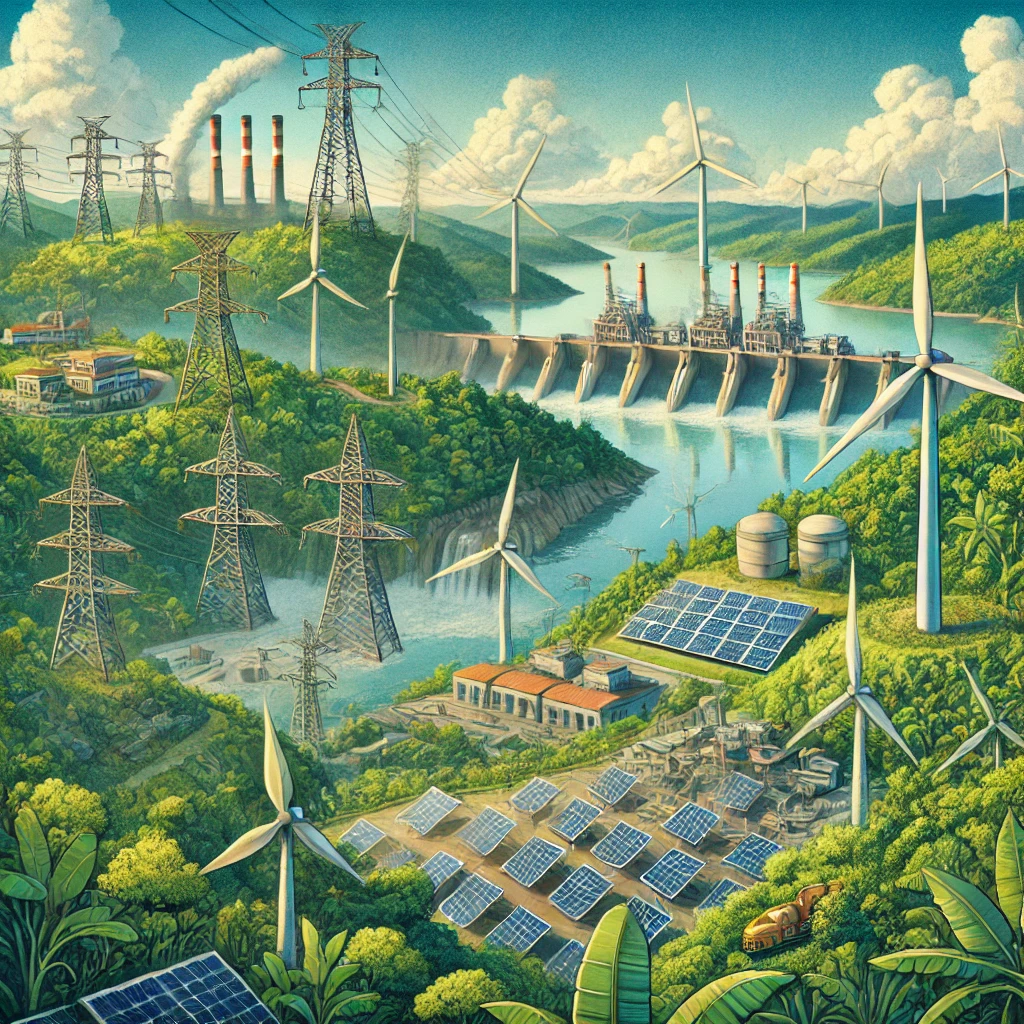
The energy transition represents one of the main global challenges in the 21st century, especially in the context of climate change and the search for sustainable development. Brazil, with its vast natural wealth and a relevant history of investments in renewable energy, emerges as a strategic country in this process. Yet, The opportunities provided by this transition are accompanied by risks that need to be faced to ensure a balanced and resilient economy.
One of the biggest opportunities for the energy transition in Brazil is the diversification of the energy matrix. The country, which has historically depended on hydroelectricity as its main source of energy, has expanded its operations in other areas, especially in solar and wind energy generation. Brazil is already one of the world leaders in renewable energy, with emphasis on the wind sector, that in 2022 generated approximately 12% of the country's electricity. Besides that, Solar energy has shown exponential growth in recent years. This diversification strengthens energy security and reduces dependence on sources that, although renewable, are vulnerable to climate change, like hydroelectric, which suffers from reduced rainfall during periods of prolonged drought.
Leadership in renewable energy is another opportunity that puts Brazil in an advantageous position. According to the Ministry of Mines and Energy, more of 80% of the country's electricity already comes from clean sources, which gives Brazil an international role in discussions about sustainability and energy transition. With increasing global demand for low-carbon solutions, the country has the chance to export both technologies and know-how in renewable energy. This could strengthen Brazil's role in multilateral agreements, like the Paris Agreement, while attracting foreign investment, creating an enabling environment for sustainable economic growth.
However, the energy transition also presents significant risks, especially related to dependence on imported technologies. Although Brazil has advanced in the production of clean energy, Most of the technologies used – such as wind turbines and solar panels – are still imported, mainly from China. This dependence could become an obstacle to the development of a robust national renewable energy industry, limiting the creation of qualified jobs and internal technological development. Besides that, Vulnerability to currency fluctuations and global supply crises can impact the cost and viability of energy projects in Brazil.
Another important risk is the economic impact on regions dependent on fossil fuel exploration.. Brazil is still one of the world's main oil producers, and some regions, like the state of Rio de Janeiro, have an economy heavily dependent on this industry. The transition to a low-carbon economy could result in job losses and tax revenue in these areas, creating a scenario of economic uncertainty. The lack of adequate planning for professional retraining and the creation of new job opportunities in green sectors can worsen regional inequalities, exacerbating social and economic problems.
Besides that, the energy transition requires large investments in infrastructure. Brazil faces significant challenges in relation to energy flow and distribution, especially in remote or economically vulnerable areas. The expansion of renewable energy requires the construction of new transmission lines and energy storage systems to ensure the stability of the electrical grid. Without these investments, there is a risk that the country will not be able to fully exploit its potential in renewable energy, leaving communities isolated or overloading the energy system in times of high demand. In addition, the lack of adequate financing and bureaucracy associated with the construction of large infrastructure projects are additional barriers that can delay the progress of the energy transition.
In short, The energy transition in Brazil offers enormous opportunities for sustainable development, especially through the diversification of the energy matrix and global leadership in renewable energy. Yet, risks cannot be underestimated. Dependence on imported technologies, The economic impact on regions dependent on fossil fuels and the urgent need for investment in infrastructure are challenges that need to be faced with effective public policies, technological innovation and long-term planning. If well managed, the energy transition can not only strengthen the Brazilian economy, but also consolidate the country as a global power in the fight against climate change.
